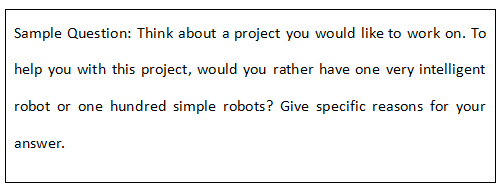10 Advanced Vocabulary for “Writing Sample” in the Duolingo English Test - Assumed Situation
In the first two articles of the "10 Advanced Vocabulary for Writing Samples" series, we introduced advanced vocabulary and usage related to Personal Experience, Culture and Society. In this blog post, we will explore ten advanced vocabulary words pertaining to Assumed Situations, along with their definitions and examples of how to use them effectively.
| Writing Sample | Personal Experience |
|---|---|
| Culture and Society | |
| Assumed Situation | |
| Historical and Cultural Reflection | |
| Ethics and Morality | |
| Technology | |
| Relationships and Communication | |
| Career and Finance | |
| Travel and Leisure Activities | |
| Physical and Mental Health | |
| Creativity and Imagination | |
| Problems and Decision-Making | |
| Faith and Values | |
| Natural Environment Protection | |
| Psychology and Emotions | |
| Friendship | |
| Education and Learning |
Advanced Vocabulary List and Applications
Here are 10 advanced words, along with tips on how to incorporate them into your writing about assumed situations:
1. Exemplify
Definition: To illustrate or clarify by providing an example.
Example: The case study serves to exemplify the challenges faced in urban development.
Usage Tip: Use this word to highlight specific instances that illustrate broader concepts.
2. Elucidate
Definition: To make something clear or easy to understand.
Example: The professor aimed to elucidate the complex theories behind social behavior.
Usage Tip: Use this word when explaining intricate ideas or concepts in detail.
3. Counterfactual
Definition: Relating to or expressing what has not happened but could have happened.
Example: The counterfactual analysis of the event revealed alternative outcomes.
Usage Tip: Use this term to explore hypothetical scenarios that diverge from reality.
4. Postulate
Definition: To suggest or assume the existence of something as a basis for reasoning.
Example: Many scientists postulate that climate change is accelerated by human activity.
Usage Tip: Use this word to introduce assumptions that form the foundation of an argument.
5. Scenario
Definition: A hypothetical situation or sequence of events.
Example: In this scenario, the team must decide how to allocate resources effectively.
Usage Tip: Use this term to outline potential situations for analysis or discussion.
6. Inevitably
Definition: Unavoidably; certain to happen.
Example: If we do not address climate change, the consequences will inevitably affect future generations.
Usage Tip: Use this word to emphasize the certainty of an outcome in a given situation.
7. Prevalent
Definition: Widespread or commonly occurring.
Example: Misinformation is prevalent in online discussions about health.
Usage Tip: Use this word to describe trends or issues that are common in a specific context.
8. Proficient
Definition: Competent or skilled in doing or using something.
Example: Being proficient in multiple languages can enhance career opportunities.
Usage Tip: Use this term to indicate a high level of skill or expertise.
9. Conundrum
Definition: A confusing or difficult problem or question.
Example: The ethical conundrum faced by the committee required careful deliberation.
Usage Tip: Use this word to describe complex issues that require thoughtful consideration.
10. Illuminating
Definition: Providing insight or clarity; enlightening.
Example: The research findings were illuminating, shedding light on previously unknown factors.
Usage Tip: Use this word to describe information that clarifies or enhances understanding.

Sample Answer:
For a project focused on research and development, I would choose one very intelligent robot. This robot could elucidate complex problems and postulate innovative ideas, making it highly proficient in adapting to new challenges. While a hundred simple robots may be prevalent for basic tasks, they would inevitably lack the ability to handle sophisticated scenarios. An intelligent robot would not only exemplify efficiency but also drive the project to successful outcomes.
Further Reading:
Duolingo Practice Test: How to Excel with Strategies, Tips, and a Comprehensive Mock Exam.
(A Comprehensive Guide to Tips and Practice for the Duolingo English Test.)
How to practice for the Duolingo English Test.
(An Article on How to Practice for the Duolingo English Test)





